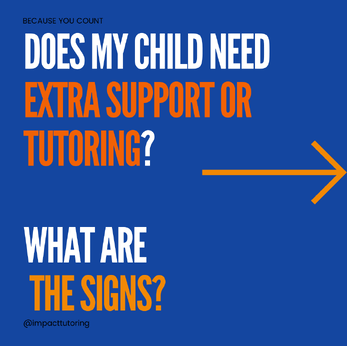Behaviours often come from a place of feeling overwhelmed or confused
Feeling a little lost when it comes to your child's academic journey? You're not alone. As parents, we all want our children to thrive in school, but sometimes it's hard to tell if they're just having a tough time or if they truly need some extra support. It can be incredibly worrying to see your child struggle, and it's natural to wonder what the best path forward is.
This isn't about pushing your child to be a straight-A student if that's not who they are. It's about ensuring they have the tools and understanding to feel confident and capable in their learning. So, how can you spot the signs that your child might benefit from some additional academic help, like tutoring? Let's explore some key indicators together.
Are Their Test and Assessment Marks Telling the Whole Story?
One of the most immediate things we tend to notice is a shift in their learning. If you're seeing consistently low grades in one or more subjects, or a significant drop in performance from what they were achieving before, it's a clear signal to pay closer attention. Of course, a dip here and there can happen—we all have our off days! But if it becomes a persistent pattern, it might mean the material is becoming increasingly challenging, and they're struggling to keep up. This isn't about judgment; it's about identifying where they might need a little extra guidance to grasp those tricky concepts.
Beyond the Report Card: Watching Their Behavior
Sometimes, the loudest signals aren't on the report card at all. Take a moment to observe your child's attitude and behaviour towards schoolwork. Are they melting down over homework assignments, showing increased frustration, or trying to avoid schoolwork altogether? You might also hear them engaging in negative self-talk about their abilities, like "I'm just not good at maths" or "I don't understand what they are doing."
These behaviours often come from a place of feeling overwhelmed or confused. It's tough when you're trying your best but still not getting it. These are big indicators that they might need some personalised support to build their confidence and make learning a more positive, less daunting experience.
Effort vs. Understanding: The Deeper Dive
You see your child putting in the time, sitting at their desk, and genuinely trying. But despite all that effort, are they still struggling to understand basic concepts? They might be able to memorise facts for a test, but if they lack a deeper comprehension of the "why" behind it, they could hit a roadblock when the topics get more complex. This isn't a reflection of their intelligence, but rather a sign that the way the material is being presented might not be clicking for them, or they missed a foundational piece. Targeted instruction can be incredibly beneficial here, helping them solidify those building blocks.
The Gap Between Potential and Achievement
Have you ever thought, "My child is so bright, but their marks just don't reflect it?" This significant gap between potential and achievement can be puzzling for parents and teachers alike. It's when you know your child is capable, perhaps even brilliant, but their academic performance isn't lining up with their perceived abilities. There could be various reasons for this, from learning differences to simply not being engaged with the material in the classroom. Identifying this gap means there's an opportunity to bridge it with the right support, allowing their true abilities to shine through in their academic success.
Listening to the Experts: Teacher Recommendations
Perhaps one of the most valuable insights comes from the person who sees your child learning every day: their teacher. Your child's teacher is in a unique position to observe their understanding, engagement, and overall progress in the classroom. If a teacher expresses concerns about your child's progress or recommends additional support services, it's incredibly important to take their professional opinion seriously. They're trained to spot students who might benefit from extra help and their recommendations are often rooted in their expertise and experience. Their input can be a powerful indicator that tutoring or other academic assistance could truly make a difference for your child.
Navigating these waters as a parent can be challenging, but remembering that seeking support is a sign of strength, not weakness, can be empowering. Whether it's a tutor, a learning specialist, or simply a different approach at home, giving your child the tools they need to succeed academically can alleviate frustration and foster a love for learning.
Are any of these signs resonating with you and your child's current experience?




